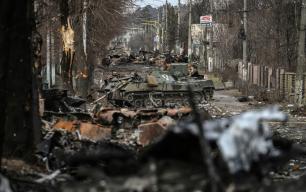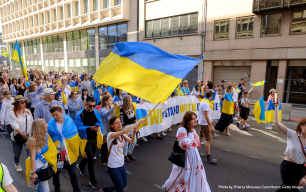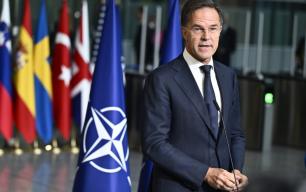As Israel struck Qatar, South Africans saw echo of last decade of apartheid

By Gershwin Wanneburg
Gonda Perez remembers the day South Africa’s apartheid regime bombed a refugee camp in the Zambian capital, Lusaka, during an air raid. It was in the mid-1980s. Perez was working as a dentist at a local hospital at the time and saw about 10 victims brought in on trucks serving as makeshift ambulances. One of the victims is etched in her memory.
“I stood in casualty, and I watched people come in with wounds, horrible wounds,” said Perez, now 69. “One man that I remember had blood spurting … so obviously it hit an artery or something out of his back… There was blood all over the show and it was really horrible to look at.”
That day, Perez said, the South African Defence Force (SADF) had meant to strike members of Umkhonto we Sizwe (MK), the military wing of the African National Congress (ANC), which led the struggle to end racist white minority rule in South Africa in 1994. But they hit civilians instead.
Perez, who was an ANC member living in exile after fleeing South Africa in the 1970s due to her political activities, witnessed several SADF bombings and raids across regional countries at the time. She says the Lusaka raid was one of many such “mistakes” committed by the apartheid army due to faulty intelligence. For her – and many observers posting on social media – those bombings also have shades of the Israeli military’s attack on Qatar last week, which aimed to hit the leadership of Palestinian group Hamas, among them senior leaders Khalil al-Hayya and Khaled Meshaal.
Instead, it killed al-Hayya’s son, Humam, as well as an aide, three bodyguards, and a Qatari security officer, in a residential suburb in Doha that is also home to embassies, schools and supermarkets. The attack came at a time when Qatari officials, who are central mediators in talks between Israel and Hamas, had been trying to broker a ceasefire in Gaza, where Israel has killed more than 65,000 people since launching its war on the Palestinian enclave two years ago.
A United Nations inquiry and leading scholars have declared the killings in Gaza a genocide. Israel’s occupation of the West Bank has also become increasingly violent, and it has launched attacks on neighbouring countries, citing various threats. Over a 72-hour period this month, Israel struck Palestine, Yemen, Syria, Lebanon, Tunisia and Qatar.
This military escalation is reminiscent of the brutal assaults the apartheid regime launched on its neighbours in the decade or so before its demise, analysts note, as it attacked countries including Zambia, Angola, Namibia, Zimbabwe, Botswana and Mozambique. Like Israel today, apartheid South Africa justified its incursions as necessary to fight its “terrorist” enemies, a claim which helped both countries win support from the United States.
“Similar to Israel’s recent actions, South Africa’s military action abroad relied on targeted attacks against ANC leadership and safehouses, as well as other activists,” said Sonja Theron, a lecturer in security studies at the University of Pretoria. Apartheid assassinations included shootings and bombings, with civilians often caught in the crossfire.
“The disregard for international law, particularly sovereignty, is also similar,” Theron noted. Over the last two years, Israel has struck and killed Hamas members in Iran and Lebanon, while its military also bombs sites associated with Hezbollah and Yemen’s Houthis, groups it says it targets for their support of Hamas. Civilians have also been killed in these attacks.
Similarly, apartheid South Africa’s cross-border attacks aimed to neutralise the MK and other regional liberation organisations which were granted refuge and support by the “front-line states”, a loose coalition of African countries committed to ending apartheid and white minority rule.
An ‘intimate’ connection
Observers note that the parallels between Prime Minister Benjamin Netanyahu’s government in Israel and the apartheid regime are far from coincidental.
Apartheid was officially instituted in South Africa in 1948, the same year the state of Israel was born. Both nations used religious justification to promote an ethnonationalist ideology, and both defined themselves by their struggle against a similar enemy, with the apartheid National Party and the Zionist state each viewing themselves as an oasis of Western civilisation surrounded by hostile native peoples, researchers say.
Aljazeera.com
- 299 views










Comments